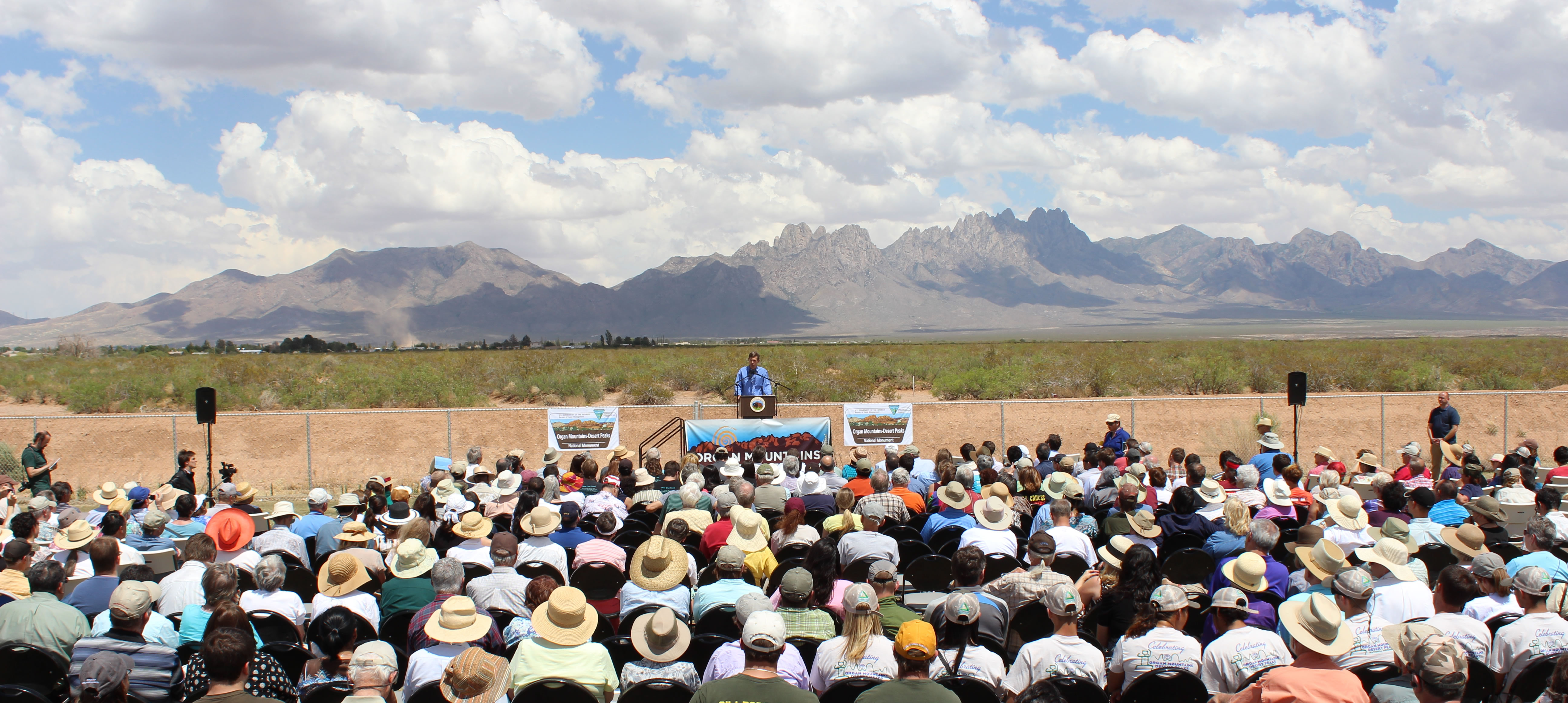Defending Our National Monuments

PHOTO: Nearly three years ago, U.S. Senator Martin Heinrich addressed the crowd at the celebration of monument designation for Organ Mountains-Desert Peaks in southern New Mexico.
Dear Friend,
President Trump signed an executive order this week aimed at undermining the Antiquities Act, shrinking, or even eliminating some of the most iconic American places. This executive order threatens many of our most treasured national monuments and public lands across America, including the Organ Mountains-Desert Peaks and the Rio Grande del Norte National Monuments in New Mexico. I for one won't stand for this action.
Under the Antiquities Act, the president has the authority to designate national monuments to permanently protect public lands and resources of historic, scientific, and cultural importance. Since President Teddy Roosevelt signed the Antiquities Act into law in 1906, presidents from both political parties have used the law to protect places that are integral parts of who we are as Americans. In New Mexico, the Antiquities Act established White Sands, Carlsbad Caverns, Chaco Canyon, and Bandelier, and most recently Organ Mountains-Desert Peaks and the Rio Grande del Norte that draw visitors from around the world.
Our national monuments, national parks, and public lands are not only critical to conserving our historical, cultural, and natural heritage, but they are also good for business. According to the report released this week by the Outdoor Industry Association, outdoor recreation is among our nation's largest economic sectors, representing the lifeblood of thousands of American communities and providing livelihoods for millions of American workers. The outdoor recreation economy creates $887 billion in annual consumer spending and directly supports 7.6 million jobs. In New Mexico, outdoor recreation generates 68,000 jobs and $6.1 billion of annual economic activity.
I've been proud to stand with New Mexico communities who worked for years on conservation efforts across our state. President Trump's executive order seems to be clearly aimed at places like Organ Mountains-Desert Peaks, Rio Grande del Norte, and Bears Ears National Monument in the Four Corners region of southeastern Utah.
I just spent time in Bears Ears with my wife and two boys during their spring break earlier this month, and I can attest that this is a landscape full of history and grandeur that we must work to protect for future generations of Americans.
Bears Ears is sacred ground, and tribes must have a say in the stewardship and management of it. I was pleased to support New Mexico tribes like the Navajo Nation and Zuni Pueblo, who were part of an Inter-Tribal Coalition that called for monument protection. The thousands of historic and cultural sites within this stunning landscape of big skies and red rocks play a prominent role in the oral histories, traditions, and ceremonies of regional tribes. Over the last century, these tribes have seen their cultural sites in the region looted and desecrated. And intensive resource development had encroached upon sensitive archaeological sites. Now, thanks to monument protection, the tribes finally have a seat at the table in managing the stewardship of the land and cultural sites.
New Mexicans' livelihoods are rooted in our open spaces. Any effort to erase our national monuments from the map should not be mistaken for the mainstream values of Westerners whose way of life depends on the region's land and water. If President Trump were serious about listening to the voices of local communities, he would look at monuments like Organ Mountains-Desert Peaks and Rio Grande del Norte as the gold standard of how you start at the grassroots level.
I urge New Mexicans, and all Americans, to make their voices heard to stand up for our nation's conservation legacy, our obligation to respect tribal sovereignty, and for the places that make us who we are as Americans.
Sincerely,
MARTIN HEINRICH
United States Senator